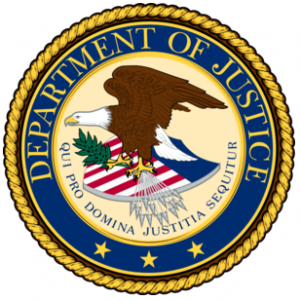Google CEO Page Said To Avoid Potential Criminal Prosecution In Pharma Settlement
Last week the bombshell announcement came that Google was admitting liability and forfeiting roughly $500 million in profits and fees from accepting illegal ads from Canadian pharmacies targeting US residents. This is a historic “fine” according to the US Department of Justice (DOJ). But new information revealed over the past few days suggests that Google may […]

The DOJ “non-prosecution agreement” explains that Google was on notice since 2003 that licensed and unlicensed Canadian pharmacies were using AdWords to sell drugs to US residents and that the ads violated or potentially violated a number of US laws and FDA regulations. Now the US Attorney in charge of the DOJ probe, Peter Neronha, has said that Larry Page was personally aware of what was going on with the Canadian ads, as well as the fact that the ads were illegal.
Advertisers “Circumvented” Google Controls
It appears that starting in 2003 Google used two third party companies to verify that pharmaceutical advertisers were actually licensed in Canada and/or the US. However many unlicensed pharmacies were apparently able to defeat the system according to the DOJ’s documentation. The DOJ says that, beginning in 2004, Google was “on notice” that advertisers were “circumventing” the certification process and that Google did not prevent the unlawful AdWords from appearing until it became aware of the DOJ investigation.
Here’s what Neronha told the Wall Street Journal:
“Larry Page knew what was going on,” Peter Neronha, the Rhode Island U.S. Attorney who led the probe, said in an interview. “We know it from the investigation. We simply know it from the documents we reviewed, witnesses that we interviewed, that Larry Page knew what was going on” . . . Mr. Neronha said he didn’t have any plans to prosecute Mr. Page or individual executives, although he said they weren’t off limits.
Is this a case of insufficiently rigorous controls by Google or does it reveal a kind of “willful blindness” or something even worse — an intentional violation of the law for financial gain? Google issued the following statement last week in response to news of the settlement:
“We banned the advertising of prescription drugs in the U.S. by Canadian pharmacies some time ago. However, it’s obvious with hindsight that we shouldn’t have allowed these ads on Google in the first place. Given the extensive coverage this settlement has already received, we won’t be commenting further.”
A “Mistake” or Something Willful?
This relatively bland comment asserts Google made a “mistake,” and was not committing a willful violation of the law. However Google critics such as lawyer Gary Reback and Harvard Professor Ben Edelman argue that Google knew the conduct was illegal and sought to profit from it. Reback told USAToday that “Google operated as an illegal drug distribution channel for illegal drug importers and made money doing it.”
Edelman goes further, arguing that this settlement and the underlying conduct outlined by the DOJ “undermines Google’s credibility” across the board:
These admissions and the associated documents confirm what I had long suspected: Not only does Google often ignore its stated “policies”, but in fact Google staff affirmatively assist supposed “rule-breakers” when Google finds it profitable to do so…
In June I observed that Google’s bad ads span myriad categories beyond pharmaceuticals — charging for services that are actually free, promising free service when there’s actually a charge, promoting copyright infringement, promoting spyware/adware, bogus mortgage modification offers, work-at-home scams, investment rip-offs, identify theft, and more.
Persistent Google critics such as Edelman see this as a “gotcha” moment where Google’s bad behavior is laid bare for all to observe. However I’m less certain this is a conspiracy revealed. But it also doesn’t seem like a simple case of Google not paying close enough attention either.
Postscript: A shareholder civil suit has now been filed against Google’s Board of Directors for breach of fiduciary duty over the episode, seeking unspecified damages.
Contributing authors are invited to create content for Search Engine Land and are chosen for their expertise and contribution to the search community. Our contributors work under the oversight of the editorial staff and contributions are checked for quality and relevance to our readers. The opinions they express are their own.
Related stories
New on Search Engine Land